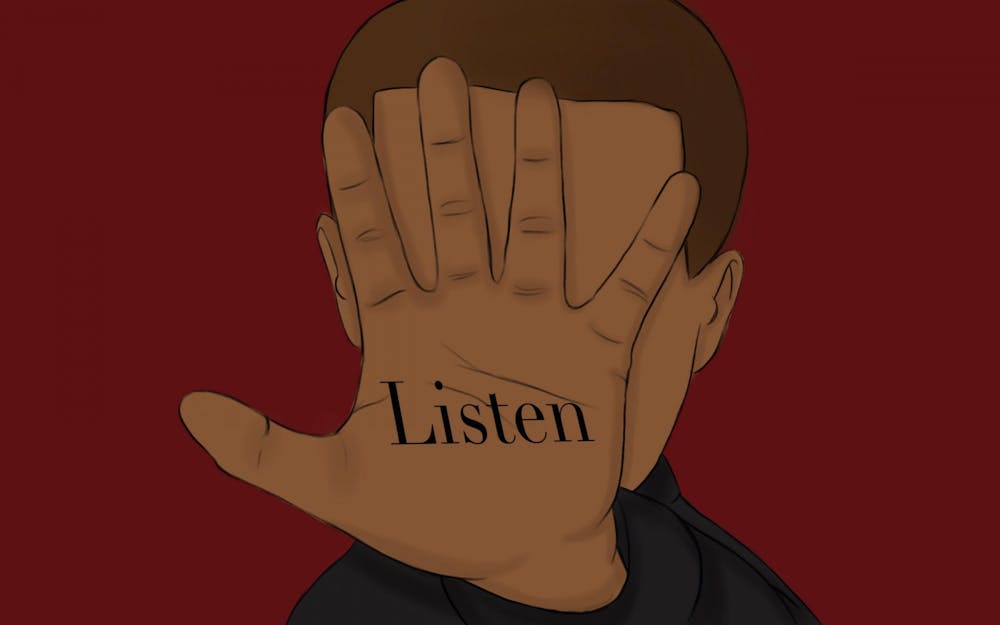I write for the Indiana Daily Student, so I will always have an audience that's going to read my work. Still, I have to ask which audience is going to read — a Black one or a non-Black one?
Black Voices article titles always start with "Black Voices," which seems to clearly indicate the subject matter. I am a Black writer talking about Black topics in a section called Black Voices. I'm not looking to cater to a wider audience, instead I want to provide an overlooked perspective.
It's a question not of intent but readership. Many people of color, especially writers and artists, have to present their thoughts and opinions while keeping in mind the possible response of white folk. Black people aren't alone in this dilemma, but it's such a common phenomenon with us it's worth pointing out.
Even in this column, I have to present my thoughts in a so-called professional manner. Aside from common slang terms, which I have no problem refraining from using, I have to carefully consider what I talk about. If it's a topic only familiar to other Black folk, I still have to make it palatable for a white audience, even if it's not my intended demographic. If I want to talk about cultural appropriation, I have to do it in a noninflammatory way, mitigating.
But what if my thoughts are inherently inflammatory to a wider audience? This question has been brought up time and time again throughout the history of Black writers and artists — should the works of Black folk always be in service to bettering our image?
White audiences will always be here and they will always have a say. They owned the printing presses and publications. W. E. B. Dubois described a phenomena called "double consciousness" in his collection of essays, "The Souls of Black Folk," articulating how Black folk are always aware of how they are viewed in the eyes of white gaze. Voicing support for civil rights was once inflammatory. The fight against slavery was first made by legislation, and mere words drove this country to war. So why soften my words and cater to an audience that, historically, doesn't have the same expectation when writing for me?
Well, because even saying something like that is seen as rude. It's exclusionary. I'm talking about people without including them in the conversation itself.
When I talk about how social media sharing videos of brutality against Black folk isn't getting us any closer to legislation reform, why include a white person’s perspective? When I talk about grappling with the history of America and racism, why address white people if they are not going to be genuine when discussing American racism?
When talking about these topics, there's a white fragility that has to be acknowledged so white folk can always, in some way, be actively included. I can't simply write about the realities of racism and bigotry, I have to explain racism so the people who don't face it can understand, even though I'm not writing for them. It's not enough to merely point out issues, I have to offer solutions for problems I didn’t create.
The frustrating thing about writing while Black is that I know the white audience I have to cater to won’t be satisfied. They might voice dissent about how unfair my judgement is and how often they're unfairly portrayed, but nothing will please them. No amount of placating ever has.






